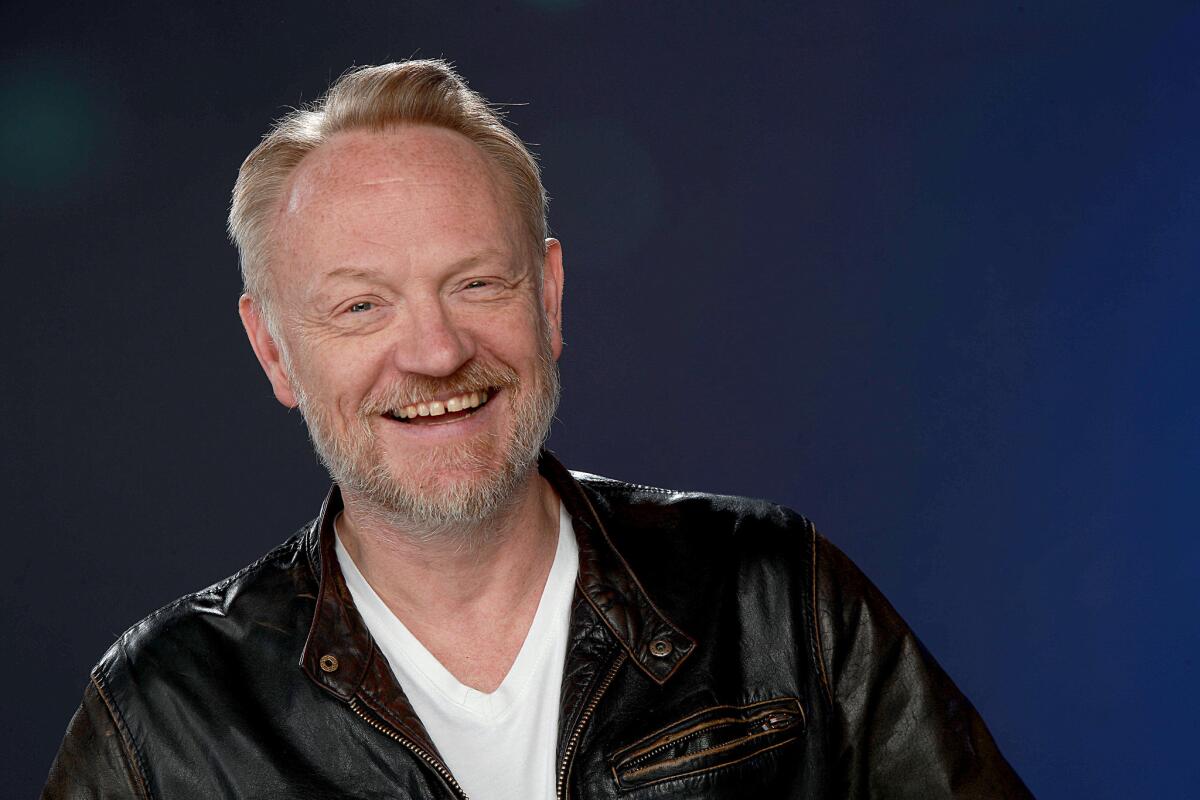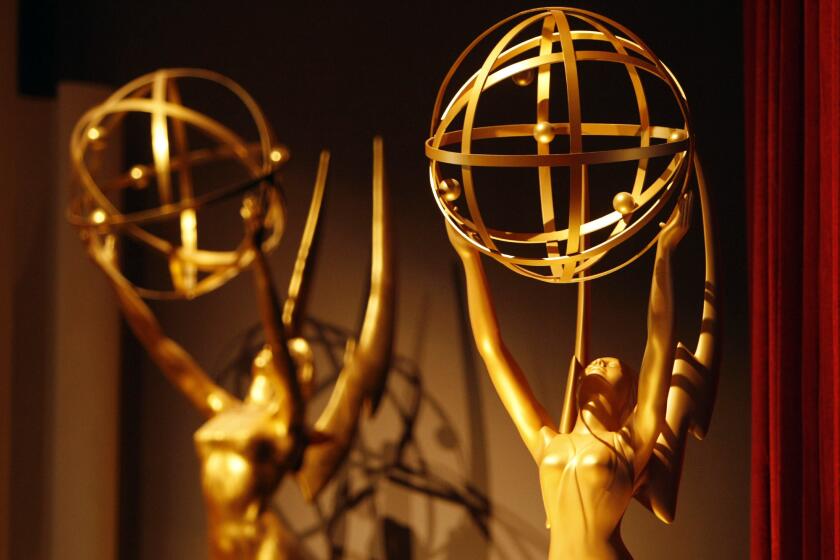With ‘Chernobyl,’ Jared Harris learned a shocking truth about the nuclear destruction

In the HBO miniseries “Chernobyl,” Jared Harris plays Valery Legasov, the real-life scientist the Soviet government called when an accident at the Chernobyl nuclear power plant was reported. Before he came to the project, Harris, like many of us, had a limited understanding of what actually happened at Chernobyl, including the key role that Legasov had played.
While officials downplayed the damage and worried about containing media leaks, Legasov understood almost immediately the horrific implications of the disaster, including the toll on his health as he oversaw the multipronged attempt to prevent an international disaster. As the story unfolds, Harris infuses Legasov with heroic resignation, working to limit the damage all the while knowing his presence at the site is likely killing him.
“You’re trying to track that thought process as you’re going through those early scenes,” he said on a recent visit to the L.A. Times video studio. “Because we all have magical thinking, we all think, ‘The plane will crash but I’ll walk out.’ So where is the point the character realizes, ‘Oh, I’m screwed.’”
I thought I knew what happened at Chernobyl, and I didn’t. The level of heroism of the people involved, the level of destruction involved, did you know?
It’s very cleverly told by [creator] Craig Mazin, and his structure for the story was really smart. There’s many things that strike you about the story, the political intrigue, the cover-up by the Soviets, the heroism of the people involved who realize that they’re the unlucky ones who are there on this day, when someone has to step into this situation. And there’s just no way they’re going to survive, but someone’s got to do it. In some way, what Craig wanted to do was to recover some of these names from history, and give them an appropriate place.

Jared Harris of the HBO miniseries “Chernobyl” talks about how his character’s self-defense mechanism confronts reality.
But also, it’s the idea that we were really close to an event that was going to decimate most of Europe, and would also have this tremendous impact, obviously, on the rest of the world. I suppose it’s a cautionary tale as well about how the simple act of withholding the truth from the people has these tremendous consequences, which causes a lot of suffering.
Your role in this is the truth teller, the scientist who comes in.
He’s been pretty successfully erased from the story. He’s the one who knows how big the problem is, and he’s powerful in the sense that he has this information, and he’s completely impotent in the sense that no one will listen to him. He’s an expert that no one pays attention to. Technically speaking, it is actually impossible for a nuclear reactor to blow up, and that’s what they had a hard time dealing with, because you can’t ignite anything. But you find out in the last episode how it all happened. It’s a sort of perfect storm of these various elements coming together to create this one particular situation.
Where did you shoot?
We shot in Lithuania, and at a real nuclear power plant in Ignalina … that they were decommissioning when we were there. And they would go, “Oh, there’s no nuclear fuel left here. It’s all gone.” And we’d go, “OK, that’s great. So, Thursday we’ll be coming in in the morning.” “No, you can come in after 3 o’clock.” “Well, why is that?” “Because we’re taking the nuclear fuel out. That’s the day we take it out.” (laughs)
Did you visit the actual Chernobyl at all? It’s a tourist destination now.
No way. You sign waivers. It’s at your own risk. And there are parts of that place where, when they were taking all the firemen’s clothes and dumping it in the bottom of the building, that is one of the most radioactive places left on this planet. It’ll kill you if you walk down into that room. But where we were in the Ukraine, they’d say don’t drink milk, don’t eat mushrooms — there’s still an issue with the radioactivity there.
The 2019 Creative Arts Emmys have been awarded, and winners are notated on our Emmy nominations list.
You have played a lot of real people — Henry VIII, Andy Warhol, John Lennon, Ulysses S. Grant, Legasov, King George in “The Crown.” Playing George, did you feel any, as a British —
I felt pressure. We shot at Elstree and they had shot “The King’s Speech” there, and there was a 60-foot poster on the side of this building of Colin Firth [who played George] in “The King’s Speech.” Every day I would walk out of my trailer, and there he was. Initially, I thought, “Well, they could’ve taken that down. That’s a little insensitive.” And then I went, “You know what? He doesn’t look anything like George either, and that didn’t hurt him.” So it became a positive for me.
And then obviously many people came to know and love you on “Mad Men,” where you also hanged yourself.
[Series creator Matthew Weiner] told me that’s what was going to happen at the read-through for Episode 10, and I go in Episode 12, so he left it late. I was disappointed, but I knew immediately from a career point of view and story point of view that it was going to be the talking point of that season. And it had to pay off that way, so it was going to be good from that [standpoint], but it was the best working environment that I had been on, you know?
Do you have a favorite character that you’ve played so far?
Always my next one.
More to Read
From the Oscars to the Emmys.
Get the Envelope newsletter for exclusive awards season coverage, behind-the-scenes stories from the Envelope podcast and columnist Glenn Whipp’s must-read analysis.
You may occasionally receive promotional content from the Los Angeles Times.












